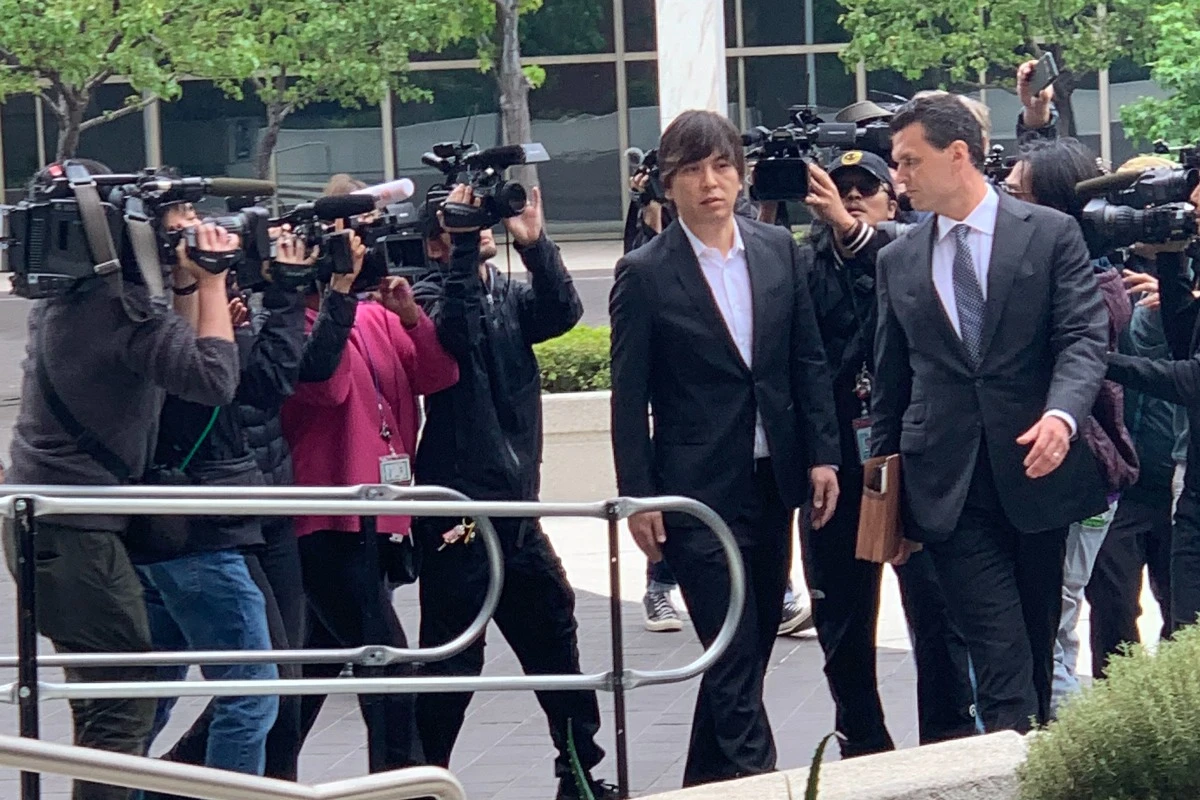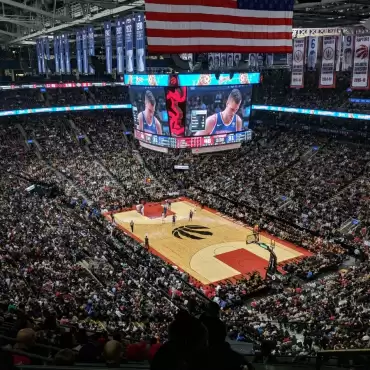Shohei Ohtani's former interpreter Ippei Mizuhara bet millions with an illegal bookie. His addiction bloomed fast. Could he have been slowed or helped if he'd been wagering with a legal operator?
US operators have many checkpoints in place that may have indicated Mizuhara had or was developing an addiction problem. And none would have extended Mizuhara credit to gamble.
But the short answer, according to a recovering addict turned addiction counselor, is that none of that would have mattered. The best efforts by legal operators are no match for addiction.
“To a (addicted) bettor, none of those are a deterrent,” said Dave Yeager, who overcame a gambling addiction and is now a recovery counsellor. “In the throes of an addiction, when the addiction is at its highest, when the next bet is so all-consuming, then nothing else matters…. There’s just not a whole lot of things that are going to stop you from doing it.”
At its height, addiction is overpowering
Yeager, who works for Kindbridge Behavioral Health, developed a gambling addiction playing slot machines while serving overseas in the army. He lost his marriage, his job and his savings. And it wasn’t until he was ready to change that he sought help.
“It’s about what point in the addiction you’re at,” Yeager said about seeking help.
Yeager said the rush addicted gamblers experience is overpowering. He likened it to binge eating.
“Just imagine you’re sitting and watching TV and you have a bag of chips and you only want a few,” Yeager said. “But the next thing you know, the bag is empty and you’ve just been sitting there mindlessly shoving those in your mouth and they are gone. It’s like if you have a craving, whether it’s salt or chocolate, and you just can’t stop because you’re not satisfied.”
Jill Dorson tells the initially heartbreaking and ultimately inspiring story of Army veteran Dave Yeager's recovery from gambling addiction. (@FallInPodcast, click image for story)https://t.co/KdWe5N2b32
— US Bets (@US_Bets) November 29, 2023
Mizuhara to plead guilty Tuesday
Mizuhara will appear in court on Tuesday (4 June), this time for a change-of-plea hearing. Last month, as a procedural matter, Mizuhara pled not guilty to charges of fraud and signing a fraudulent tax return. On Tuesday, after Mizuhara’s guilty plea is accepted, a sentencing date will be scheduled.
The case is being handled in the US District Court for the Central District of California. US District Judge John W Holcomb has been assigned to the case.
In March, Mizuhara turned himself in after federal investigators revealed he had stolen $17m from Ohtani to settle gambling debts. Although he has not been named in any of the cases related to the Wayne Nix illegal gambling ring, it appears Mizuhara was betting with Mathew Bowyer. Based in Orange County, Bowyer is under federal investigation, but has not been charged.
Know your customer, no credit
Unlike with illegal operators, all consumers betting with legal operators must go through the know-your-customer (KYC) process. During this vetting, consumers must share personal information, such as their birth date, social security number and email address.
Representatives from one operator agreed to share information about this process, but wished to remain anonymous.
Operators use this information to confirm that the person registering is who they say they are. Anyone on an exclusion list – voluntary or involuntary – would be flagged and rejected during this part of the process.
Once a player has gotten through the KYC process and begins betting, operators have programmes in place that could require a consumer undergo further review. Big bettors, called VIPs, generally undergo “enhanced vetting practices, which may require providing additional information regarding income, estimated net worth and other data points that require documentary proof”, the operator source said.
If Mizuhara had registered and begun placing big bets with a legal operator, there likely would have been a deeper background check, particularly as his betting increased. According to an affidavit, Mizuhara bet an average of $12,800 per wager. His biggest bet was $160,000. Either of those numbers would have caught the attention of a legal operator, the source said, and warranted further investigation.
Not all big bets are cause for concern
Legal operators do have customers who bet tens or hundreds of thousands at one time. These bettors are referred to as VIPs or “whales”. But anyone tied to a major professional US sports league would warrant a further look. All of the leagues have different gambling policies, but none allow betting on their own sport.
“We would look into their sources of funds and wealth, and the generated activities behind them,” the operator said. “Legal operators do not extend credit to customers. If Mizuhara had told us he was Ohtani’s interpreter, his account would be flagged and reviewed.
“Some big transactions aren’t nefarious. There are some people who make a lot of money and they see this as a leisure activity.”
Frequency of bets often warrants further review
Operators employ extensive risk-management controls designed to reveal suspicious betting behaviour, including high-frequency betting.
Mizuhara placed 19,000 bets over the course of about two and a half years, according to the affidavit. The frequency of the bets would likely also have been a flag for any legal operator.
If you are concerned that a friend or family member has developed a gambling problem, visit our Responsible Gambling site to review possible warning signs.
— bet365 US (@bet365_us) May 30, 2024
But “frenzy betting” or funding an account from different sources can also be an indicator of money laundering, which a legal operator’s integrity or investigations team would explore. Or it could be an indication of gambling addiction. All legal operators have teams dedicated to working with consumers who appear to have a gambling problem.
In addition, there are many companies, including Mindway AI, that work in the industry to identify at-risk gamblers. According to the company, it uses machine learning algorithms and predictive analytics to help identify potential trouble.
“For example, nightly play for one individual may not be unusual or harmful based on their lifestyle,” a company spokesperson said via email. “But for another, this could also tie in with other factors such as increasing tolerance or loss chasing which would give a stronger indication of an issue at hand.”
Operator efforts can’t stop full-blown addiction
In every legal US jurisdiction, operators are required to plainly post helpline phone numbers or websites. Most offer responsible gaming tools, including ways to cap time and money spent gambling. Yeager said anyone at the height of an addiction would not engage these tools. Nor would operator warnings stop the gambling.
Operators might send a push notification suggesting a player take a break or, in a more extreme circumstance, force a player to take a break. There might also be emails or phone calls to the player. These could range from just noting that the player’s habits have changed to cutting them off altogether.
Lionsgate is developing a TV series on the betting scandal involving Shohei Ohtani's former interpreter, Ippei Mizuhara.
The untitled project is described as "a story of trust, betrayal and the trappings of wealth and fame." pic.twitter.com/Jb5GtY48lD— Front Office Sports (@FOS) May 9, 2024
In Mizuhara’s case, as the frequency of betting increased, or the cadence changed, an operator would likely have gotten its problem and responsible gambling team involved. Operators have a legal right to limit or restrict players, the source said and, if a player “displays erratic behaviour”, the operator can suspend or reduce limits.
Mizuhara: “I have a problem”
When this happens, the source said, operators limit contact with the player. Because communication happens when a consumer is in the betting app or on the platform, the operator source said, companies don’t want to encourage a player with a potential problem to log in.
According to texts in and affidavit for Mizuhara’s case, he did indicate more than once that he had a gambling problem:
On 10 March 2022: Thank you, can you put in 100k instead of 300k?” BOOKMAKER 1 responded: “U mean lower credit to 100?” MIZUHARA confirmed: “Yea, I’ll get too reckless with 300.”
On or about 24 June 2023: MIZUHARA messaged BOOKMAKER 1 stating: “I have a problem lol…. Can I get one last last last bump? This one is for real…. Last one for real[.]”
A legal operator would have cut Mizuhara off. The illegal bookie offered him more credit.
Addicted gamblers often go offshore
Yeager, who is not on Mizuhara’s care team, said limits or suspensions would have been bumps in the road for someone in Mizuhara’s situation.
“I’ve had more than a few clients who had several accounts with several operators,” Yeager said. “If they tapped out one account, they’d go to another and they would go to another and, if they tapped that out, they would go offshore.”
Betting in the black market or with an illegal bookmaker is a wholly different experience than betting in the legal market. No one is monitoring accounts or worried about problematic gambling. There are no controls, no financial checks, no real concern about where the money comes from.
In Mizuhara’s case, the illegal bookmaker offered credit. A legal US operator would never and can never do that. In some states, it is illegal to fund an account with a credit card. And some credit card companies, including Bank of America, don’t allow their cards to be used to fund gambling accounts.
“We’d rather lose a customer who is acting fishy, then keep a customer who is doing something wrong,” the operator source said. “We made that decision as a business because our reputation is so important and I think that would be the prevailing strategy.
“Whereas with an illegal operator they’d be like ok, great, you’ve got the money.”
Access to money is appealing to illegal operators
In Mizuhara’s case, as was revealed in the affidavit, the illegal bookmaker knew that Mizuhara was Ohtani’s translator. Based on texts in the affidavit, this was why the illegal bookmaker extended credit.
At one point, the bookmaker threatened to expose Mizuhara to Ohtani:
Hey Ippie, it’s 2 o’clock on Friday. I don’t know why you’re not returning my calls. I’m here in
Newport Beach and I see [Victim A (Ohtani)] walking his dog. I’m just gonna go up and talk to him and ask how I can get in touch with you since you’re not responding?
By the time Mizuhara got caught betting, he owed the illegal bookmaker $40m. He embezzled $17m from Ohtani without the baseball star’s knowledge. Ohtani publicly said he had been duped and federal investigators agree he is a victim.
⚾ After @MLB opens its investigation, @Dodgers star #shoheiotani speaks out on illegal betting scandal
🎙 Ohtani: “I have never bet on baseball or any other sports or have asked anyone to do that for me.”
📰 Former interpreter Ippei Mizuhara “lied” when he told press Ohtani…— iGB (@iGamingBusiness) March 25, 2024
But Bowyer, the illegal bookmaker, was counting on that connection to recoup funds. During one span, Mizuhara was paying Bowyer $500,000 per week.
In mid-April, Mizuhara learned he was to be arrested and turned himself in. He was released from custody on $25,000 bond. At that time, he was mandated to start counselling for gambling addiction. The judge also banned him from entering a casino, contacting an illegal bookmaker and contacting Ohtani.
Mizuhara may turn to another addiction
While the legal system has, at least temporarily, put an end to Mizuhara’s betting, recovery doesn’t come easy.
“Most of the time when somebody is caught, the obsession will temporarily shut down because of the fear of what happened,” Yeager said. “There will be a desire to not do this at all. Nine times out of 10 when people are doing this, nobody knows what they are doing. So they become so scared that they don’t want to do it. Inevitably over time, they are too scared to do it, but then, eventually, they try to step into it again.”
Yeager said that because Mizuhara has also been thrust under a very bright public spotlight, he may have placed his last bet. But addiction may not be behind him.
Addiction “could manifest itself in some other way… porn addiction, spending out of control, alcohol,” Yeager said. “He could be so scared that he’ll never go anywhere near gambling. But if he’s a dopamine seeker, which many struggling with addiction are, he might find something else.”




